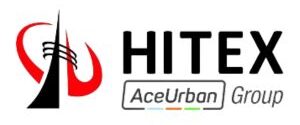Automation, Instrumentation, and Control: The Backbone of Modern Process Industries
Automation has become the critical backbone supporting the process industry’s push toward greater efficiency, reliability, and precision. In today’s competitive landscape, industries must constantly adapt, optimize, and innovate to stay ahead. This requires seamless integration of automation, instrumentation, and control systems that drive consistent performance, reduce downtime, and ensure cost-effective operations.
Key Technologies Powering Modern Process Automation
The modern process industry relies on a sophisticated network of automated systems, sensors, and intelligent controls. Here’s a closer look at the technologies shaping this transformation:
- Precision Measurement and Control: Advanced gauges, flow meters, and sensors provide accurate real-time data, ensuring critical processes remain within optimal parameters. This precision reduces material waste, energy consumption, and operational costs while enhancing product consistency.
- Automated Monitoring Systems: These systems reduce human error, improve safety, and ensure regulatory compliance by continuously adjusting operations based on real-time feedback. This level of automation reduces manual interventions and operational risks.
- Data Processing and Industrial Intelligence: With the rise of IoT, artificial intelligence, and machine learning, industrial systems are now capable of predictive maintenance, reducing unplanned downtime. Smart data analytics help identify inefficiencies, optimize asset utilization, and improve overall equipment effectiveness (OEE).
- Turnkey and Integrated Automation Solutions: Comprehensive solutions that streamline everything from design to execution, reducing operational complexities. These end-to-end systems allow seamless integration of production lines, reducing lead times and improving output quality.
- AI, AR, and VR in Industry: From predictive analytics to immersive training, these technologies are transforming every aspect of the manufacturing process. For example, augmented reality can assist technicians in real-time repairs, while AI-driven insights optimize production workflows.
- 3D Printing and Additive Manufacturing: These innovations enable rapid prototyping, on-demand production, and customized manufacturing, reducing lead times and material waste. This flexibility is critical in industries with frequent product changes or complex designs.
- Industrial Robotics: Modern robots are equipped with machine learning algorithms, enhancing precision, speed, and flexibility in demanding environments. These robots can handle hazardous tasks, improving workplace safety and reducing labor costs.
Strategic Benefits of Automation in Process Industries
Implementing these technologies offers several strategic advantages:
- Enhanced Operational Efficiency: Reduced downtime and optimized workflows lead to higher production rates and lower operational costs.
- Improved Product Quality: Consistent process control and real-time adjustments ensure superior product quality and customer satisfaction.
- Cost Savings and Resource Optimization: Automation reduces waste, minimizes energy consumption, and cuts down on manual labor, significantly lowering operational costs.
- Safety and Risk Management: Automated systems reduce the need for human intervention in hazardous environments, enhancing workplace safety and compliance.
- Scalability and Flexibility: Automated systems can quickly adapt to changing production needs, making them ideal for industries facing fluctuating demand.
Ready to Showcase Your Innovations at IPEC 2025?
Are you ready to put your brand in front of thousands of industry leaders, decision-makers, and potential clients? Be a part of the India Process Expo & Conference 2025, from August 22 to 24, 2025, at HITEX, Hyderabad. Book your stall to showcase your cutting-edge technologies, connect with high-impact buyers, and position your brand as a leader in the process engineering sector.
- Expand Your Network
- Gain Maximum Visibility
- Lead the Industry Conversation
- Drive Business Growth




